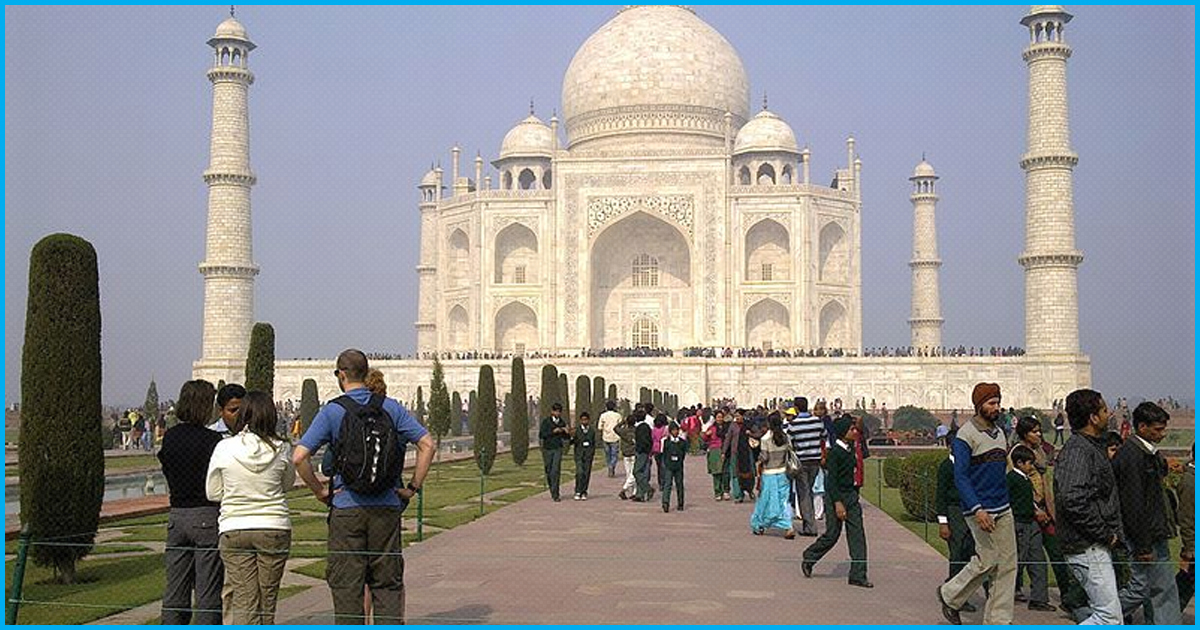Entry fee for Indian visitors to the Taj Mahal has been increased fivefold. This is part of the government’s initiative to bring down the number of visitors and reduce damage to one of the most iconic monuments reported The Telegraph. Earlier the entry was Rs 50 for Indians. However, now the price to enter the main mausoleum, which consists of artistic replicas of the graves of Shah Jahan and Mumtaz Mahal, is raised to Rs 250. On the Rs 50 ticket, visitors can move around the Taj, see the rear side of the monument and the Yamuna river at following at the back.
Five-fold increase
As per The Guardian, on an average 10,000-15,000 people visit the Taj Mahal daily, the majority of them being Indians. Ticket for Indian citizens has been raised from 50 rupees to 250 rupees for the main mausoleum, effective from last Monday.
Ticket price for international visitors except for those from SAARC and BIMSTEC nations will now be Rs 1,300. And for citizens of SAARC nations, the price has been raised from Rs 540 to 740.
The entry ticket to the Taj Mahal is valid for only three hours, post which a new ticket will have to be purchased. The entry for children below 15 will be free. Additional discount on tickets will be provided for online booking.
Earlier attempts to limit footfall
A spokesperson from the Archaeological Survey of India, the government body responsible for maintenance of the Taj Mahal said “We want people to pay more to limit the footfall. This (increase in ticket prices) will cut down the number of visitors to the mausoleum by at least 15-20% and generate revenue for its conservation”.
A few months back, in an attempt to restrict to limit the footfall the number of tourists was restricted to 40,000 per day. Before the restriction, as many as 70,000 people visited the monument daily on weekends and holidays.
According to experts, a huge flow of visitors is causing irreversible damage to the marble floor, walls, and foundations.
Authorities have been looking for various ways to stop the white marble from turning yellow because of rising pollution levels in Agra.
Yamuna River which flows alongside the monument is highly polluted and insects from the river damage the Taj Mahal by excreting on its surface. The site is also damaged by monkeys who climb up the façade of the monument.
In July this year, the Supreme Court threatened to either shut down or tear down the monument over the failure of the authorities to protect it from degradation, as reported by The Telegraph.











